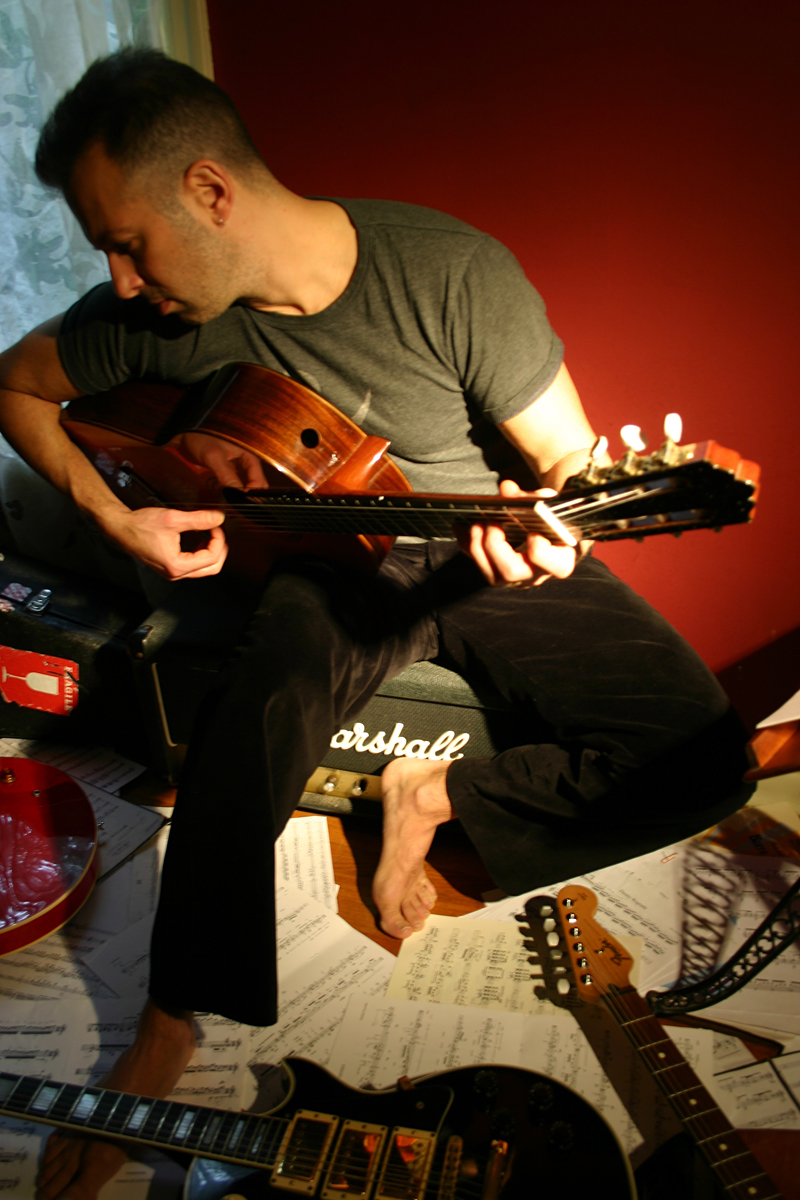Imagine that there was such an instrument as a “rock oboe” (or “jazz oboe” or “blues oboe”) that had been a foundation of popular music for decades, but had no cultural connection to the oboe as used in the classical orchestra—the same instrument, but mutually exclusive repertories, with few oboists proficient in both styles. Sounds inexplicable, but such is the weird, forking history of the guitar: one instrument, many worlds. Guitarist Michael Nicolella has found this schism inexplicable, too, after a career of shifting focus, playing rock as a teen, jazz as a music major, and classical—and only classical—after it grabbed him at the Berklee College of Music: “I put my electric guitar in a closet; I didn’t even touch it for a decade. I completely stopped playing jazz, any kind of popular music.” But after a composer acquaintance asked him about the possibility of writing for it, Nicolella says, “I realized it was just part of me—it was ridiculous to avoid it completely.” His Friday-night recital will include both electric guitar (music by Steve Reich, plus Nicolella’s arrangement of Hendrix’s “Little Wing”) and acoustic (works by Francis Poulenc, Elliott Carter, and others). His own music cross-pollinates: He’s written a concerto for electric guitar and orchestra, and his Three Brief Episodes, to be heard Friday, replicate, on acoustic guitar, electronic looping and layering effects. Nicolella has also found that the electric guitar’s familiarity makes it a good gateway instrument to expose listeners to music outside of rock: ‘[It] kind of opens up certain people to contemporary classical music who might have thought that it’s a little bit more difficult to approach.”
Ear Supply: Split Personality
One instrument, many worlds.







